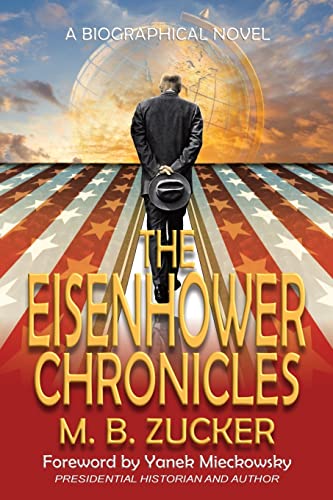The Eisenhower Chronicles
This book’s subtitle is “a biographical novel,” leading me to expect a straightforward fictional biography of Eisenhower. It is not. The author’s website says the book is about “how he defended the world from fascism, communism, and nuclear weapons.” To that end, Zucker selects incidents from Ike’s life and career that show Ike’s emotional struggles to do his duty as an officer and as President. Some major events are not covered, like the conclusion of World War II, his tenure as president of Columbia University after the war, and his heart attack. Included are how Ike handled McCarthy’s “red scare,” the forced desegregation of Little Rock’s high school in 1957, his choice to not intervene in the Hungarian Revolution in 1956, and his proposal that the United Nations should create what would become the International Atomic Energy Agency. Policy wonks will revel in discussions between Ike and his aides about these matters, and readers will come to a clearer understanding of the circumstances Eisenhower had to operate in, gaining sympathy for him because of the many difficult choices he had to make as a leader.
I had some issues with Zucker’s novelization, however. He endows Eisenhower with dreams that influenced his policies, which I didn’t think worked very well, such as one in which Russia nukes Washington, DC, and a face-to-face discussion with George Washington. Zucker falls into the new-author trap of frequent, annoying substitutions for “said,” like “interjected,” “muttered,” and “screamed.” Errors such as the wrong date for a pop song, and a character comparing a nuclear blast to the asteroid hitting the Yucatan Peninsula long before that crater was discovered, make me wonder about historical accuracy. Zucker succeeds in helping to revise Eisenhower’s former reputation as a “do-nothing” President, but as a novel, it has its flaws.










